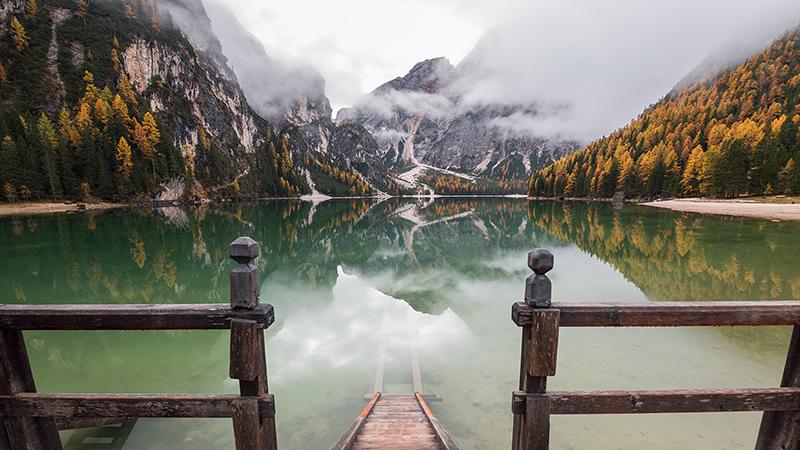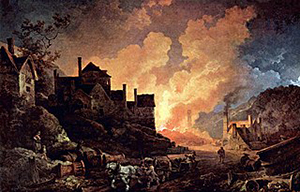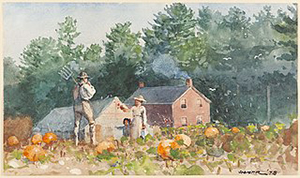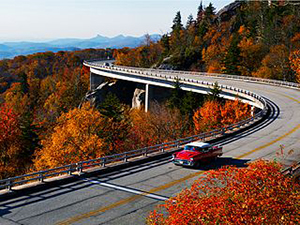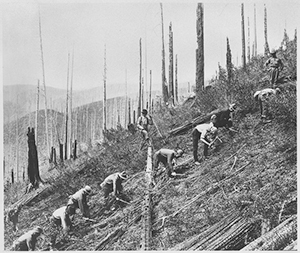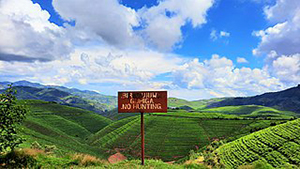Majoring in History with Emphasis on Environmental History
Undergraduate students interested in emphasizing environmental history in their coursework have a unique ability to do so at Ohio State. Ohio State's history department boasts more faculty members offering courses in the field of environmental history than any other university in the United States. Beyond the history department, students will find professors in departments throughout the College of Arts and Sciences that also center their teaching around historic human-environmental interactions. Below is a list, description, and frequency of commonly offered environmental history courses. For a complete list that includes a broader array of courses including those in the adjacent fields of the histories of technology, science, health, and medicine see the "Teaching" tab on the Environmental History Initiative homepage.
History 2911: The Climate Crisis: Mechanisms, Impacts, and Mitigation. This course is team taught by Jim Harris from the history department along with other specialists from outside the department. Due to this, it is cross-listed with the departments of Earth Science and Evolution, Ecology, and Organismal Biology. It is typically offered every autumn semester and taught in-person. It examines the science behind climate change, the ability to make accurate predictions of future climate conditions, and gauges the implications for global sustainability. It fulfills the GEN themes of Lived Environments and Sustainability.
History 2700: Global Environmental History. This course is offered by many different instructors who each bring their unique approach to the course. It is typically offered every spring and autumn semester and ranges from an in-person and online format. It provides a global overview of the ecology of the human condition in past time, stressing climate change, earth systems, technology, energy, demography, and human cultural-economic revolutions. English 1110 is a required prerequisite. This course fulfills the GEN foundations of Historical and Cultural Studies and Social and Behavioral Sciences.
History 2702: Food in World History. This course is offered by different instructors who each bring their unique approach to this course. It is typically offered every spring and autumn semester and is often offered in an online format. It surveys the history of food, drink, diet, and nutrition in a global context. English 1110 is a required prerequisite. This course fulfills the GEN theme of Sustainability.
History 2704: Water: A Human History. This course is typically taught by Nicholas Breyfogle or Ellen Arnold. It is typically offered once per academic year and either in an in-person or online format. This course probes the history of human use and understandings of water from ancient to modern times and includes case studies from a range of geographic regions. English 1110 is a required prerequisite. This course fulfills the GEN theme of Sustainability.
History 2710: History of the Car. This course is typically taught by Jennifer Eaglin. It is typically offered once per academic year and in-person. It examines the development of the car in the twentieth century initially in the United States before broadening to understand how its global expansion grew to become a defining feature of modern global society. English 1110 is a required prerequisite. This course fulfills the GEN theme of Lived Environments.
History 3700: American Environmental History. This course is typically taught by Bart Elmore. It is typically offered once every other year and in-person. It examines the history of American ecosystems from the last Ice Age to the present while focusing on historical debates over the causes and consequences of environmental change. English 1110 is a required prerequisite.
History 3706: Coca-Cola Globalization: The History of American Business and Global Environmental Change, 1800-Today. This course is typically taught by Bart Elmore. It is typically offered once every other year and in-person. It introduces students to environmental and business history and begins with the industrial revolution of the early nineteenth century before ending in the twenty-first century. It chronicles the rise of some of America's biggest multinational corporations and examines how these firms, working with government and other institutions, shaped global change. English 1110 is a required prerequisite. This course fulfills the GEN theme of Sustainability.
Ohio State Environmental Clubs
Animal Welfare and Behavior Club - The purpose of the Animal Welfare and Behavior Club is to educate and promote animal welfare science to the University and greater community.
Bioethics Club - The purpose of The Bioethics Society is to expose The Ohio State University students, faculty, and staff, to issues in bioethics, including, but not limited to, biomedical ethics, environmental ethics, and global health ethics.
Cultivate Columbus - We seek to connect Ohio State students and the larger Columbus community with the resources to start and maintain sustainable, organic community gardens using the Columbus land bank program.
Eco-Peace - Eco-Peace is an Ohio State club that represents the standard of excellence that students feel toward the love of the Earth and their campus. Our mission is to work towards a greener OSU through clean-ups, sustainability practices, and environmental social encouragement.
ENCompass: Empowering Neighborhoods of Columbus - The club's purpose is to cultivate interdisciplinary student leadership through volunteer immersion experiences in the Columbus community. To empower individuals and improve the health of those living in the Columbus community by connecting them with resources that address social determinants of health.
Environmental Sustainability Magazine - The Environmental Sustainability Magazine (ESM) is a student organization that aims to enable OSU students to write their own articles concerning environment related topics and events.
Evolution and Ecology Club - The purpose of Evolution and Ecology Club is to enhance the academic experience of Ohio State University students, faculty, and staff with interests in evolution, ecology, and related subjects.
Human-Animal Interaction Club - The purpose of this club shall be to enlighten people (students of The Ohio State University) about the complex and varying relationships that exist between humans and animals under the topics of Conservation, Animal Welfare and Behavior, Therapy Animals, and Companion Animals.
Mountaineers at Ohio State - Mountaineers at Ohio State is dedicated in its mission: To provide all levels of outdoor enthusiasts the opportunity to meet and pool their combined knowledge, experience, and camaraderie for everyone to enjoy.
The Bee Club - The club's purpose is to raise awareness and teach Ohio State students of the importance of bees in the environment, as well as the integral role honey bees play in the food industry.
Time for Change - Time for Change aims to transform The Ohio State University into a model of modern global citizenship by mobilizing the community to actively participate in environmental stewardship and compassionate social responsibility.
Ohio State University has over 1,400 student organizations. View more listings here.
National Programs
American Conservation Coalition - The American Conservation Coalition is changing the narrative on environmental discussions through promoting a mix of market-based, pro-business, and limited-government environmentalism in legislatures, college campuses, the political arena, and beyond. The tOSU Branch of the American Conservation Coalition will specifically do these things on campus to prepare students with the ability and knowledge to act on environmental issues within their values, wherever that be on the political spectrum, through legislation, service, or any way connected to their personal goals.
The Sierra Student Coalition - The Sierra Student Coalition works to bring the mission of the Sierra Club, "Explore, Enjoy, and Protect the Planet," to our campus.
